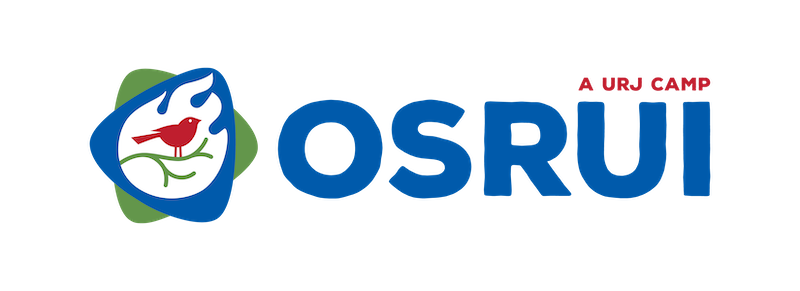By Rabbi Frederick Reeves, Rabbi at KAM Isaiah Israel in Chicago IL, and Tzofim Segel
I write this having completed my first week of Jewish camp. Not only my first week at OSRUI, not only my first week as faculty, but my first week ever at a Jewish camp. When one goes to rabbinic school having never attended Jewish camp, there is an intellectual distance that grows around some of the conversations that one has about creating Jewish identity in our young people. Yes, I have seen the statistics that demonstrate how Jewish camp affects the identity of our youth. Yes, I have heard people talk about their experiences at Jewish camp. Yes, I have encouraged my own congregants to attend camp. But this week has been the first time that I have lived the experience.
The biggest challenge for me so far has been acculturating myself to the traditions that exist at camp. I am faculty in Kibbutz HaTzofim, and Kathy Schwartz, my faculty partner, tried to prepare me for this. She said that in Tzofim we do things a little differently. There’s a unique culture in Tzofim. Having lived a week in Tzofim, that is certainly the case. Outdoors, tents, nature, eating under the trees on our picnic tables — all of these contribute to a certain approach to living that is unique to Tzofim. I knew that I was becoming a Tzofimnik today during the Monday Torah service at our Tefilah. As we opened the ark, the frog which allegedly lives in the ark and about which I had heard so much but had doubted the genuine existence — the frog jumped out of the ark and landed on my tallit. I didn’t jump, I didn’t yell out in surprise, I didn’t drop the Torah. I calmly turned to Kathy and said, “oh, here’s the frog.”
The clear success of living in the Jewish environment of camp and how that affects one’s Jewish identity has also been easy to see this past week. The learning that we have been doing this session is focused on understanding the American Jewish experience. Each of the chanichim (campers) has received the identity of an immigrant from Europe who has come into this country. We simulated the Ellis Island experience, we decided what communal organizations our incipient community should create (Union for Reform Judaism President Rabbi Rick Jacobs will be delighted to hear that the URJ was fully funded), and we wrestled with decisions that early American Jews had to make to balance their Judaism with the realities of living in America. Through it all, these chanichim have thoughtfully applied Jewish perspectives to complex problems. They do not realize it, but they are role playing through the kinds of decisions that they will have to make in their own lives, not just reviewing historical choices that others have made. For instance, where does Shabbat fit into American life? Can we be a part of America and apart from America at the same time? What can my religious community demand of me? When they take their place as adults in the Jewish community, they will have had a strong foundation upon which to make those decisions.
They will also have had strong, positive, caring role models. One part of Jewish camp that is hard to appreciate when you have not experienced it directly is how much the madrichim (counselors) truly care about their chanichim. This is not just a summer job for them. They understand that they are forming a link in a chain of tradition that transmits Jewish identity through loving relationships, and they take that responsibility very seriously. Chanichim are cared for, and as they imagine becoming madrichim themselves, they see themselves caring for other campers in the future. This is the way that Judaism and Jewish values really are transmitted. Not in the classroom, but through living.
